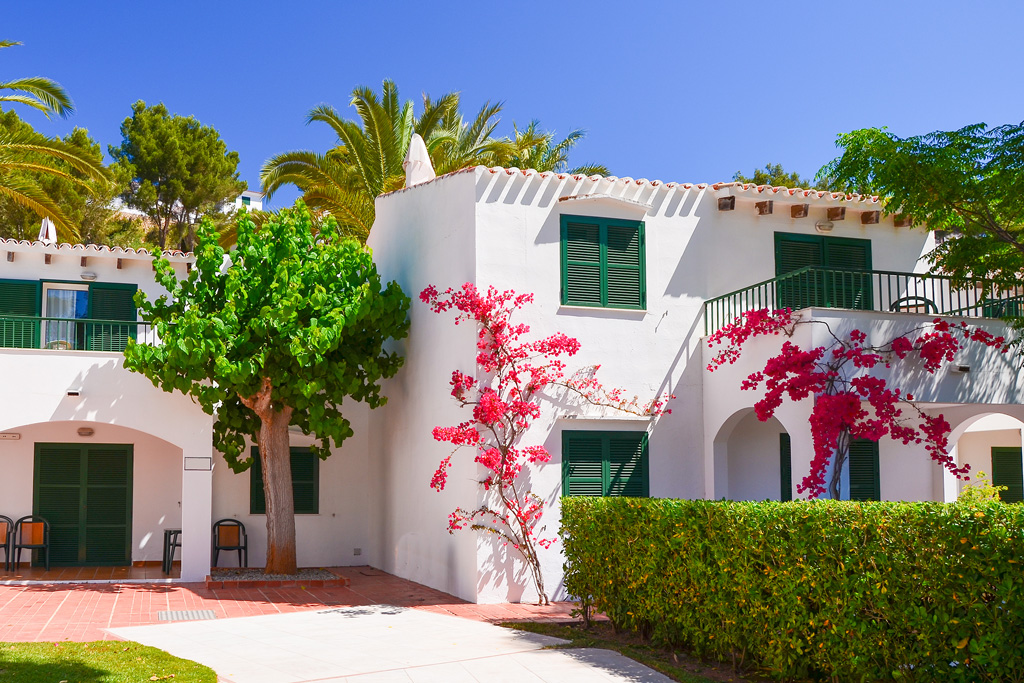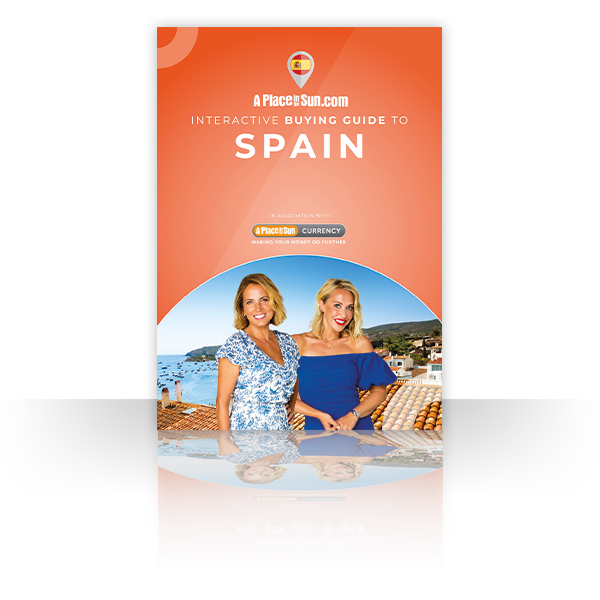-
Find your place in the sun
- Home
-
Property Search
- Property Search
-
Property in Spain
- Property in Spain
- Almeria
- Costa Blanca
- Costa del Sol
- Costa Brava
- Costa de la Luz
- Costa Tropical
- Murcia
- Valencia
- Inland Andalucia
-
Canary Islands
- Canary Islands
- Tenerife
- Fuerteventura
- Lanzarote
- Gran Canaria
- Balearic Islands
- All Areas
- Property in France
-
Property in Portugal
- Property in Portugal
- Algarve
- Albufeira
- Lagos
- Lisbon Coast
- Silver Coast
- All Areas
- Property in Italy
-
Property in Greece
- Property in Greece
- Aegean Islands
- Corfu
- Crete
- Halkidiki
- Ionian Islands
- All Areas
- Property in Florida
- Property in Cyprus
- Property in Turkey
- Search all countries
- New Developments
- Find an agent in...
- Most Popular Properties
-
-
Help & Guides
- Help & Guides
- How to Buy
- Area Guides
- Free Guide Download
- Professional Services
- Currency
- Mortgages
- Insurance
-
Relocation
- Relocation
-
Moving to Spain
- Moving to Spain
- Buying property in Spain
- Living in Spain
- Retiring to Spain
- How to move to Spain
-
Moving to France
- Moving to France
- Buying property in France
- Living in France
- Retiring to France
-
Moving to Portugal
- Moving to Portugal
- Buying property in Portugal
- Living in Portugal
- Retiring to Portugal
-
Moving to Italy
- Moving to Italy
- Buying property in Italy
- Living in Italy
- Retiring to Italy
-
Moving to Cyprus
- Moving to Cyprus
- Buying property in Cyprus
- Living in Cyprus
- Retiring to Cyprus
- Moving to Malta
- Find a Lawyer
- Viewing Trips Guide
- Articles
- Webinars
- New Developments
- Live Events
-
TV Show
- TV Show
- Episodes
- Presenters
- Apply
- Advertise with us
-
- Sign up / sign in
- Currency
- Find an agent
- Advertise with us
Buying property in Spain
 Buying an overseas property is an exciting life event, and Spain is a top choice across the board!
Buying an overseas property is an exciting life event, and Spain is a top choice across the board!
However, it's important to go about things the right way and equip yourself with as much information as possible before deciding on your dream home.
Take a look at the areas you need to research below.
How to go about buying a property in Spain
So, you've decided to buy a property in Spain - what next? How do you go about making that dream a reality? Here we outline some of the steps you'll need to take and some of the key pieces of information you'll need to move forward with your purchase.
Finding a lawyer
When you know where (and what) you want to buy, you'll need to find a lawyer who can act for you throughout the purchase process. They'll be able to ensure that the process is as smooth as possible.
Learn more about how to find a lawyer.
Power of attorney
So that you don't have to fly to Spain to sign every document (which can become time consuming and expensive), you can authorise someone to act on your behalf in regards to legal matters.
Find out more about powers of attorney.
Working with an estate agent
Estate agents play a much more integral role in the purchase process in Spain than they do in the UK, so it's important that you know what to expect when working with one!
Learn more about working with an estate agent.
Purchase costs
The purchase costs for buying in Spain are typically 11 to 14% of the property price, depending on the region of Spain, and the type of property.
Find a full breakdown of the types of costs here.
Costs of ownership
When you're choosing the right Spanish home for you, it's key to make sure that your Spanish lawyer advises you about the estimated running costs of the property before you commit to buying it.
Find out more about the types of costs you will need to consider here.
Getting a mortgage
There are a variety of different types of mortgage available to you when you're buying a home in Spain. Find out more about what they are, how long they take to obtain and why it's vital that you have the contract translated by an expert.
Read more about getting a mortgage in Spain here.
Building surveys
You'll need to decide which type of survey you need.
Find out more about each type, and the kind of advice you need, here.
Getting your NIE
You won't be able to buy a property in Spain without an NIE.
Learn more about what an NIE is and how to obtain one.
Making a Will
You'll need to have a Spanish Will as well as a Will in the UK for all your Spanish assets.
FAQs: Buying Property in Spain
Are there any taxes or fees when buying property in Spain?
Yes, it's typically 11 to 14% for the purchase or closing costs, depending on the region of Spain, and the type of property. If you have a Spanish mortgage you need to add an additional cost of 2 to 4%. There will also be costs for obtaining an NIE number and connecting utilities.
But the ballpark above includes Transfer tax (ITP), equivalent to stamp duty, calculated on the property purchase price and between 6.5 and 10%, depending on the region.
It also includes the Notario’s fee of around 0.5% of the purchase price, and tends to range from €300 and €1200. Land Registry fees in Spain tend to be between €400 and €600 – or 0.4% of the purchase price.
Legal fees are usually a percentage of the purchase price – generally 1% plus VAT– but with a minimum fee. Typically this might be €1,000 to €2,000. VAT on new-build properties in Spain is 10% and stamp duty on new-build is 1.5% of the purchase price.
Where are the cheapest properties for sale in Spain near the beach?
Bargain beach properties are often found in regions like Costa Cálida, Almería, or parts of the Costa Blanca. Inland towns near coastal areas also offer lower prices.
Is it better to buy a new build or resale property in Spain?
New builds offer modern features and energy efficiency, while resale properties may offer more character and better location options, often at lower prices. The right choice depends on your needs and budget. But if you are planning for the future bear in mind Spain is planning new laws on energy efficiency ratings towards 2030.
Can I get a mortgage in Spain as a non-resident?
Yes, many Spanish banks offer mortgages to non-residents, typically financing up to 60–70% of the property value. Proof of income and creditworthiness will be required.
What are the best regions in Spain to buy property for investment?
Popular investment regions include Costa del Sol, Alicante, Murcia and Valencia. If thinking of rental yields bear in mind cities like Barcelona, Valencia and Palma are stopping or restricting holiday rental licences. Inland areas like Granada also offer strong growth potential at lower entry prices but will not get the same level of demand (or rates) as coastal places.
Are there bargain or distressed properties for sale in Spain?
Yes. "Bargain" properties can be found in rural villages, inland regions, or through bank repossessions. Always conduct proper due diligence to avoid pitfalls.
Can I live in Spain permanently if I buy property there?
Buying property doesn’t automatically grant residency, but owning real estate can support visa applications. You will need to apply for a visa to spend more than 90 days in 180 there if you do not have an EU passport – such as a Non Lucrative Visa or Digital Nomad Visa.
